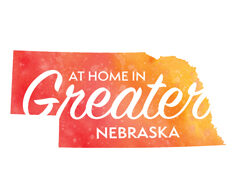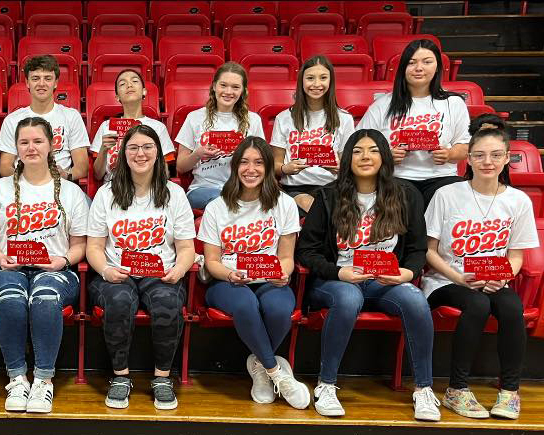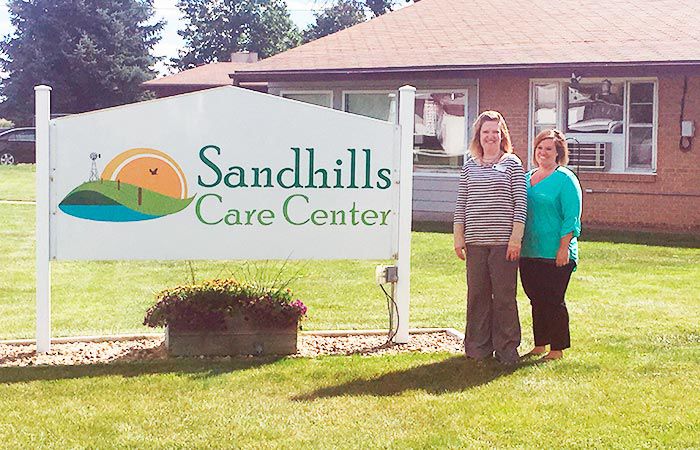Nebraska Community Foundation celebrates our state’s local abundance. Often that means local talent, institutions, entrepreneurship, and the ongoing transfer of wealth. But Nebraska is overflowing with natural abundance as well.
On this Earth Day, we want to lift up the work of NCF affiliated funds working to protect and preserve our amazing planet.
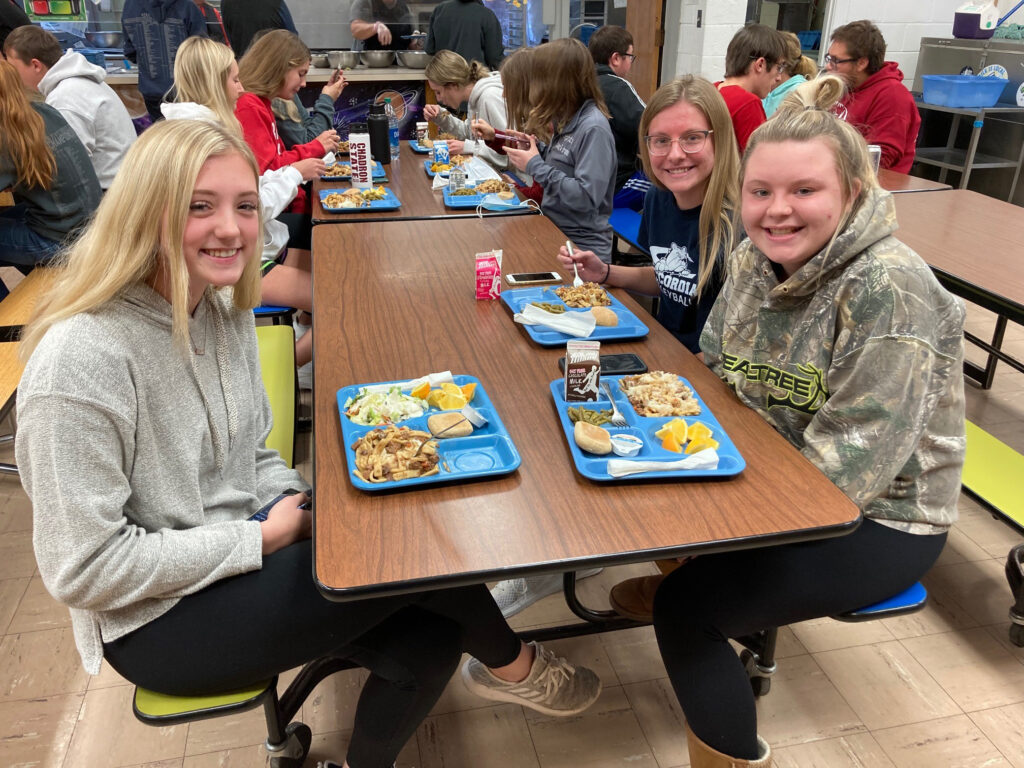
Local Foods in Nebraska Schools
From Local Abundance to Nurture Our Future
Many communities across the state are bringing locally sourced fruits, vegetables, and proteins into the school cafeteria, minimizing environmental impact and maximizing kids’ opportunities to learn about Nebraska’s rich agricultural heritage and where the food we eat comes from.
The Titan Beef Boosters Club for Thayer Central Schools in Hebron was one of the first programs in the NCF network to bring local foods to school lunch trays. Area producers are highlighted on a banner in the cafeteria. Students see their own names on the banner along with names of friends and family. FFA students are growing lettuce in the cafeteria using tower gardens, and a local farmer provides many of the vegetables.
Diller Community Foundation Fund’s Fed from the Farm Local Food and Nutrition Program account raises funds to help support the Diller-Odell Public Schools’ Fed From The Farm Local Food and Nutrition Program, including but not limited to: processing costs related to locally donated meats, nutrition education, and costs to support other locally grown and produced food.
In Overton tortillas are homemade and the school garden and a new educational greenhouse (funded by Overton Area Community Fund) is helping make a local science teacher’s dream of creating an interactive, hands-on learning environment come true. Seth Ehler’s students are highly engaged in STEM learning, not to mention exploring new career paths.
Our network’s efforts go beyond local food in schools. Here are a few more examples of affiliated funds whose grantmaking and missions aim leave a positive environmental impact.
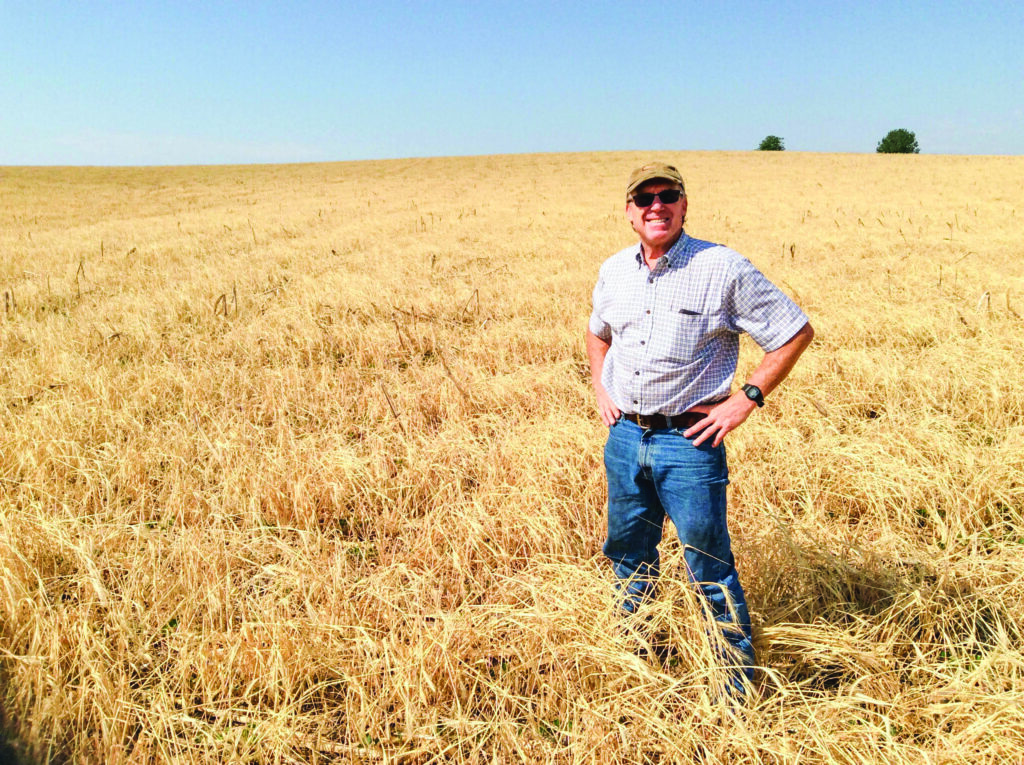
Dan Gillespie Soil Health Fund
The purpose of this Fund is to honor Dan Gillespie, a life-long farmer and a long-time no-till farming practitioner/advocate who was known locally as “Dan, the Tree Man” by making grants to support the following charitable causes and/or charitable organizations: Education and educational practices related to soil health and regenerative agriculture, including but not limited to no-till farming, water conservation, tree conservation, and planting cover crops. Grants from this Fund may support educational events and programming for youth, current farmers and ranchers, and others involved in agriculture.
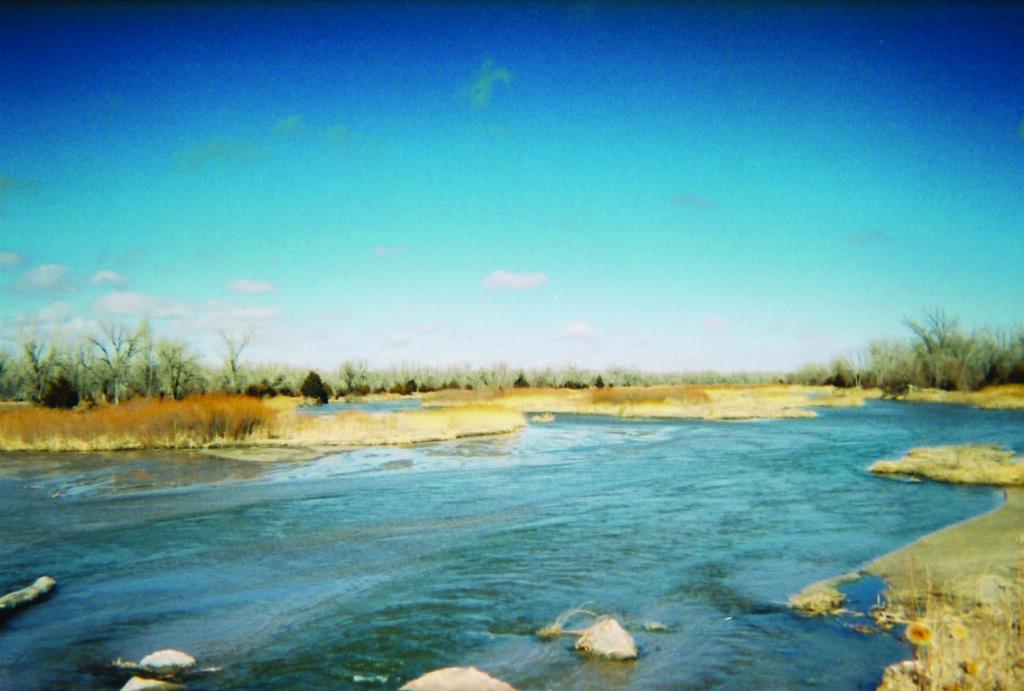
Platte River Resilience Fund
This Fund is established to develop a source of funds for long-term support of activities that will ensure conveyance of water on the Platte River system in Nebraska. Activities focus on control of invasive plant species but may include other actions necessary to support water conveyance.
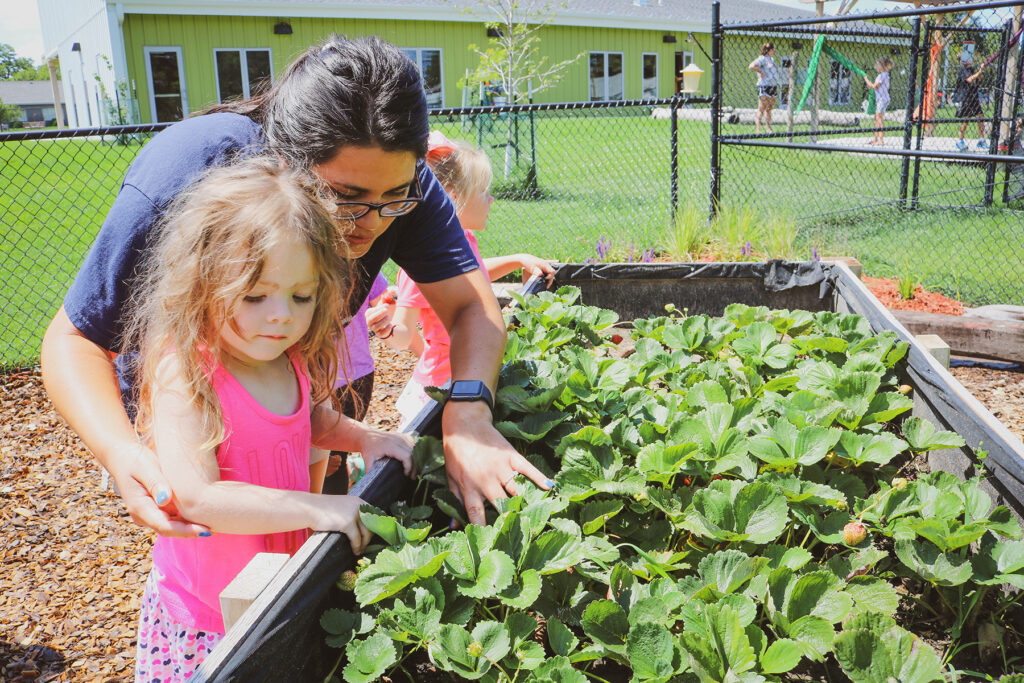
Red Cloud Community Fund
The Valley Child Development Center, a state-of-the-art early childhood education facility enthusiastically supported by Red Cloud Community Fund has added Edible Schoolyard to its long list of offerings. From planting to picking to preparing, children spent the spring and summer months learning about where our food comes from and how it grows. Any produce not used for meals at the Center is available for families to take home and enjoy.
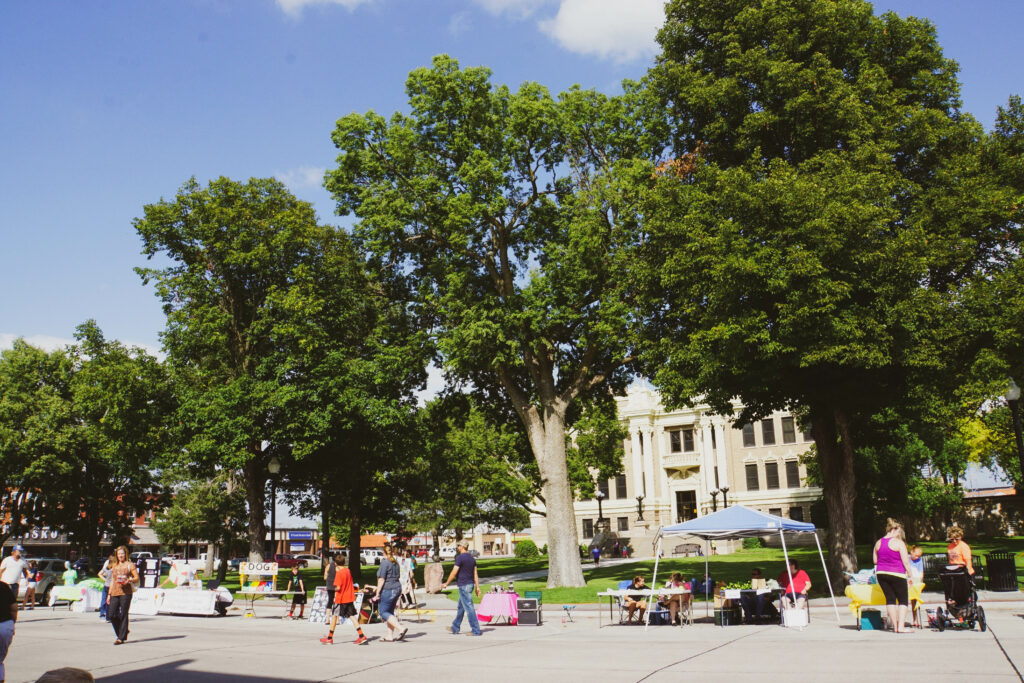
Nebraska Statewide Arboretum Fund
The Nebraska Statewide Arboretum Fund was established to support the current and emerging needs of the Nebraska Statewide Arboretum, a 501(c)(3) organization.
The Nebraska Statewide Arboretum’s objective is to promote knowledge, appreciation and use of indigenous and introduced flora of Nebraska for the benefit of the citizens of Nebraska. Striving to educate on the importance of sustainable landscapes throughout Nebraska, especially as they relate to native plants.
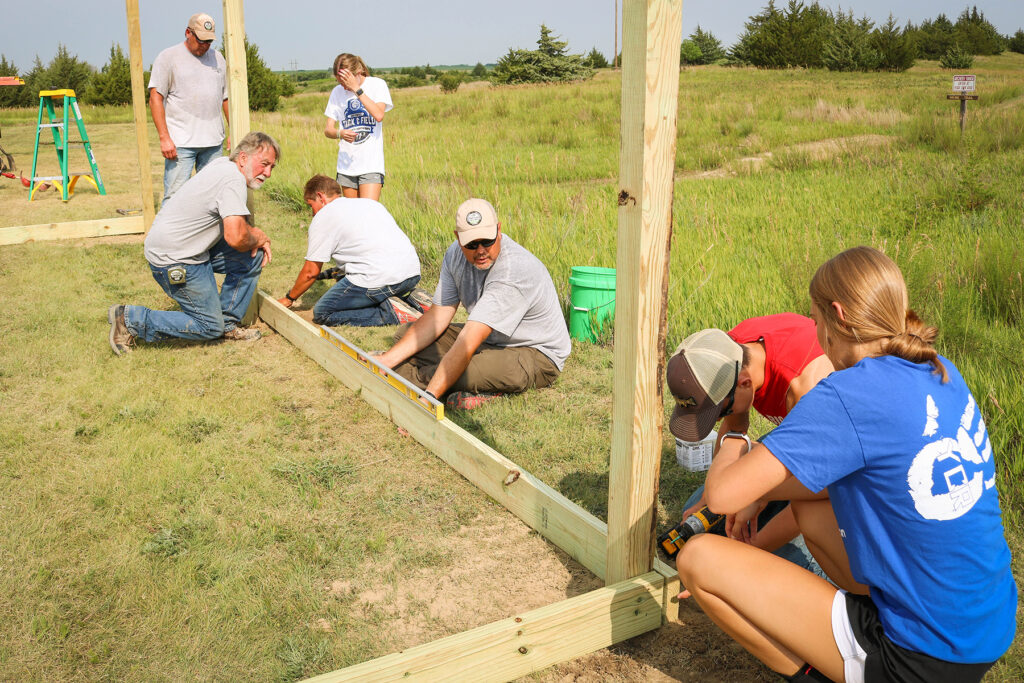
McCook Community Foundation Fund
Just last summer, McCook’s Youth Change Reaction collaborated with Nebraska Game and Parks on a bike share program at Red Willow State Recreation Area. The effort brought 12 bikes to the SRA which riders can borrow to ride the trail network. These projects happened alongside organizing dances, helping with community events, and working with middle and elementary school students in a variety of activities.
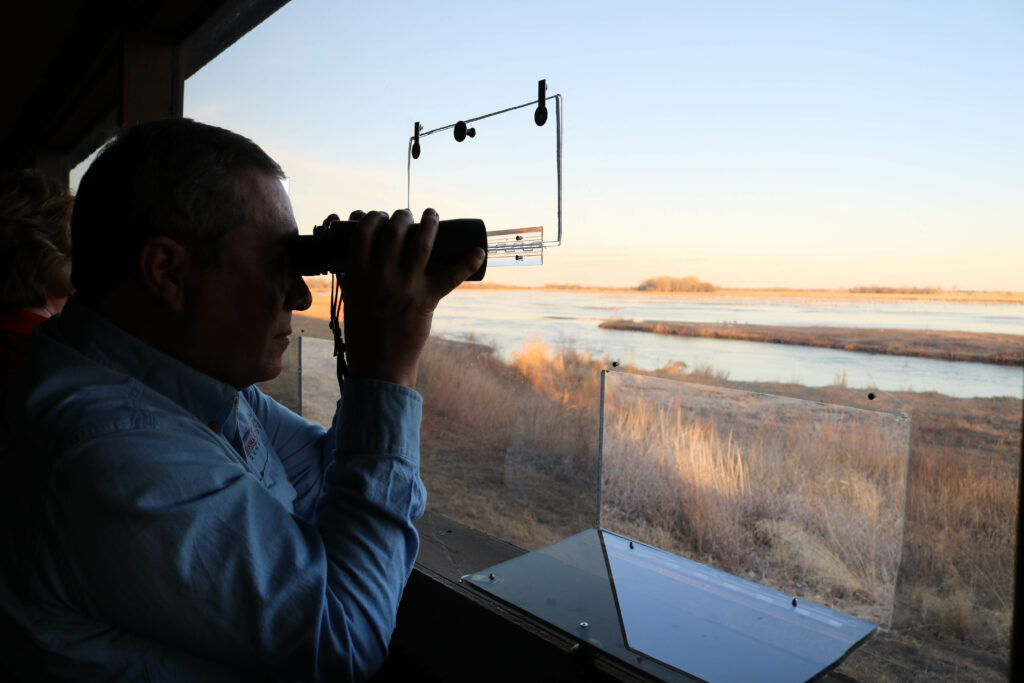
Wachiska Audubon Society Foundation Fund
The Wachiska Audubon Society Foundation Fund was established to provide support for the Wachiska Audubon Society, a 501(c)(3) organization. Contributions to this Fund provide support for Wachiska Audubon Society’s current and future needs.
Wachiska Audubon Society is a local chapter of the National Audubon Society, serving 17 Southeast Nebraska Counties. It is one of four such chapters in Nebraska. The Wachiska chapter takes pride in its role of preserving several tallgrass prairie remnants located in Butler, Cass, Colfax, Fillmore, Gage, Johnson, Lancaster, Otoe, Pawnee, Saline, Saunders and Richardson counties in Southeast Nebraska.
Wachiska Audubon Society provides volunteer and monetary support to local nature centers and sanctuaries such as Spring Creek Prairie Audubon Center and Pioneers Park Nature Center.
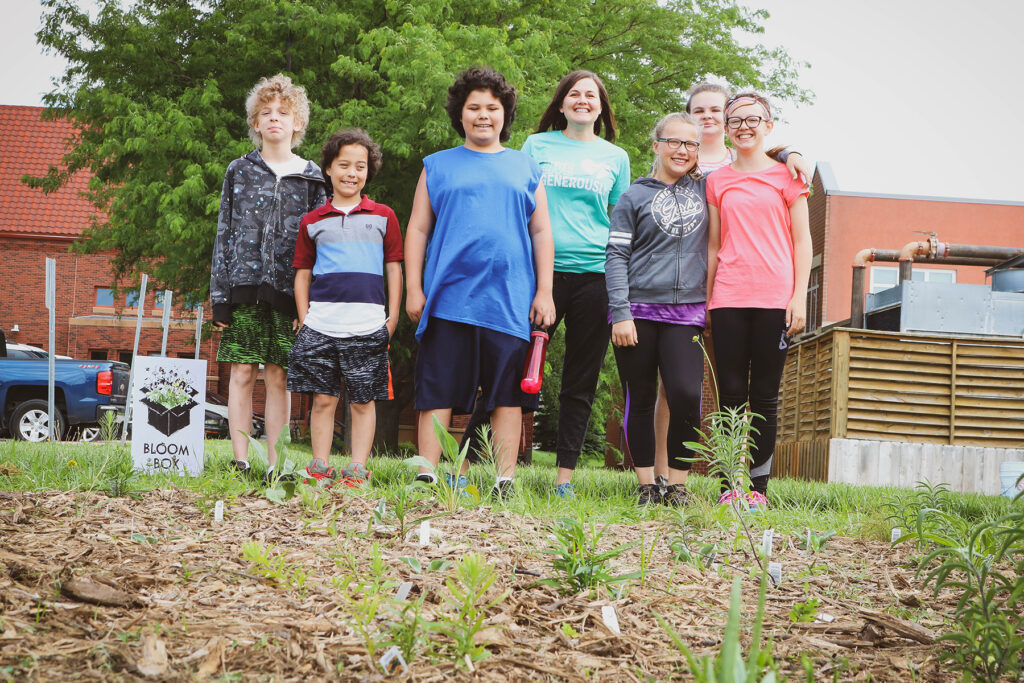
Nebraska City Community Foundation Fund
Through Nebraska City Community Foundation Fund’s grant to the Pioneer Pride Time class, local middle schoolers have been learning to plant and nurture a garden while also building an understanding of the larger ecological systems they are supporting in the process.
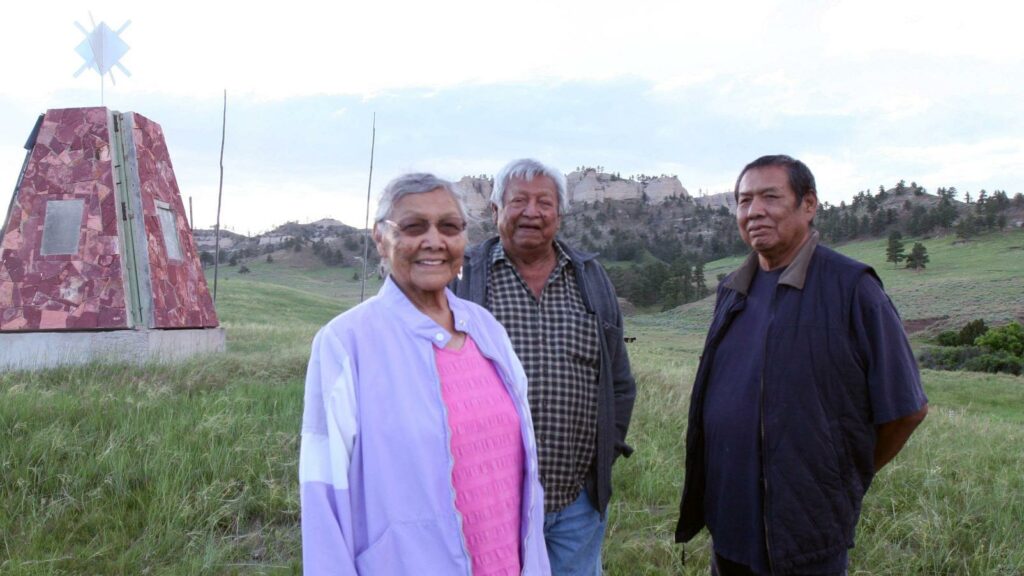
Northern Cheyenne Healing Trail
The Northern Cheyenne Breakout Legacy Fund formed in 2001 to assist with building a monument to recognize the bravery of the Northern Cheyenne ancestors who fought to return home on a fateful night in January of 1879. The monument was successfully completed in 2016, so the Northern Cheyenne Breakout Legacy Fund Advisory Committee is now focusing on the next phase of its vision: a four-mile Northern Cheyenne Healing Trail designed to emulate the path taken by the courageous Cheyenne who sacrificed their lives to help their people return to their homelands in the North. Shaded arbors with seating will be installed at four points along the trail to encourage travelers to rest and reflect on the traditional Cheyenne principles of respect, knowledge, wisdom, and spirituality, not to mention appreciation for the natural world.

